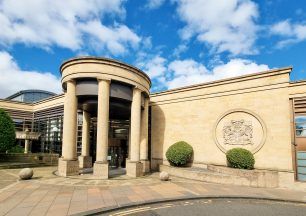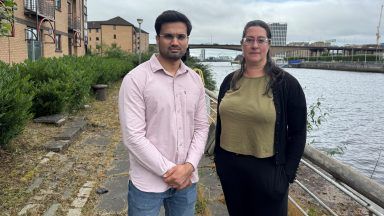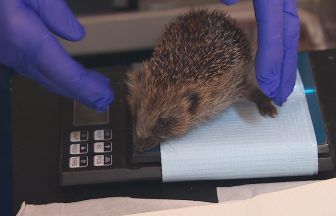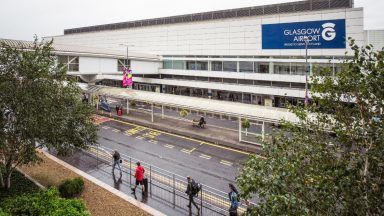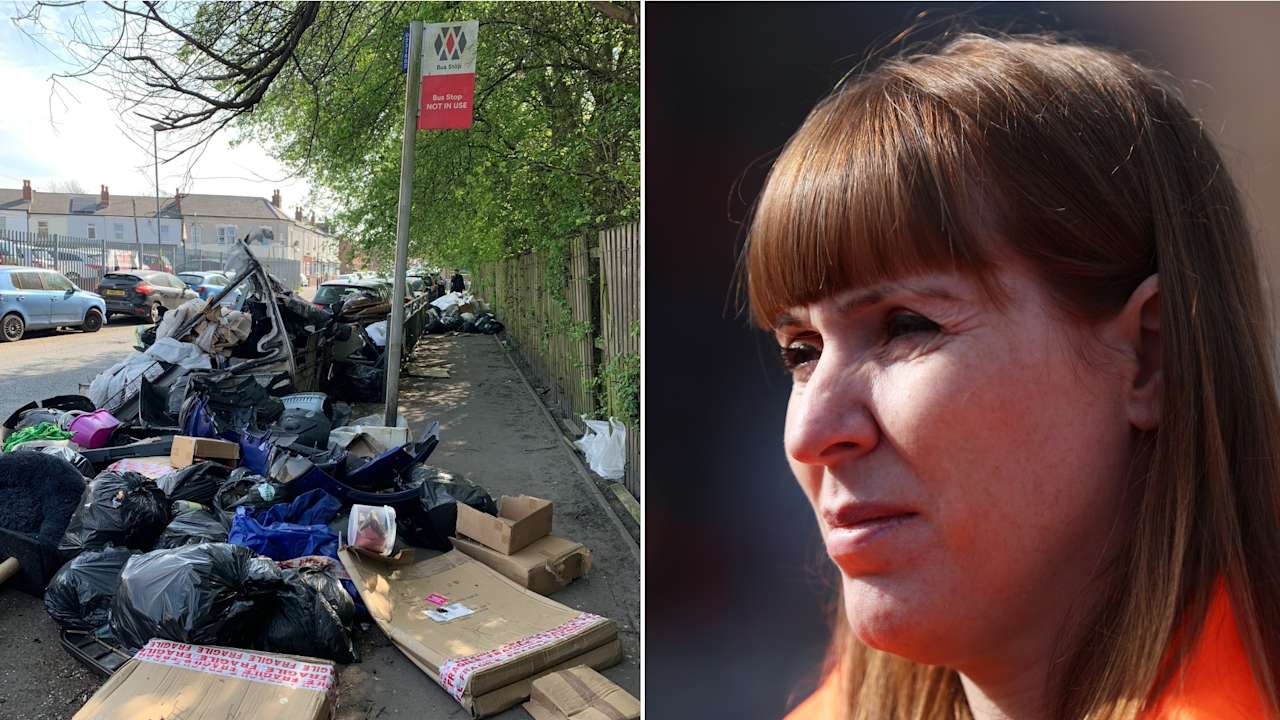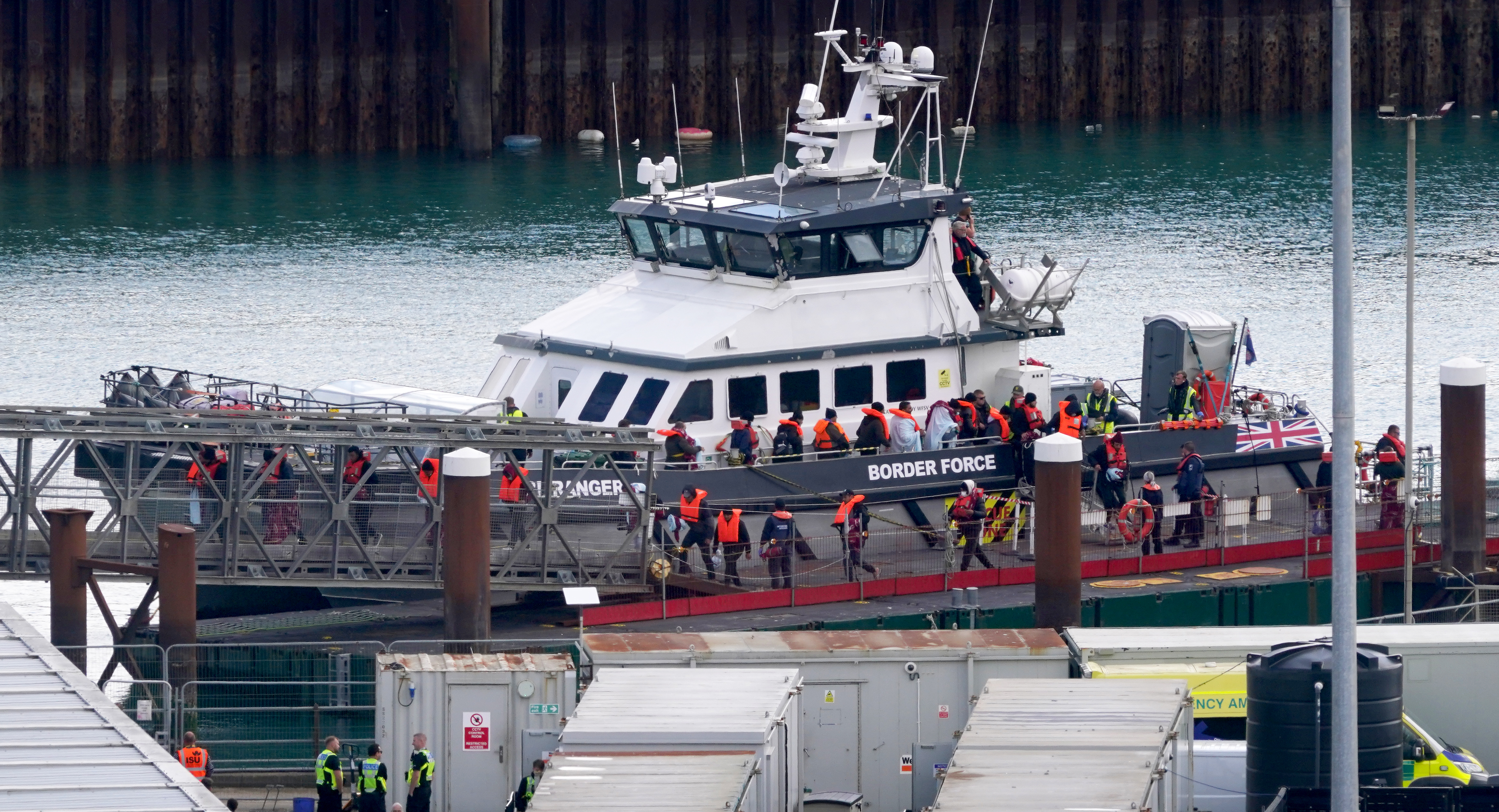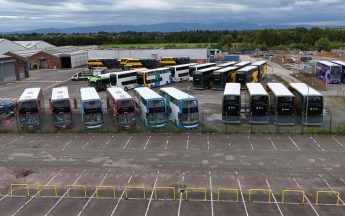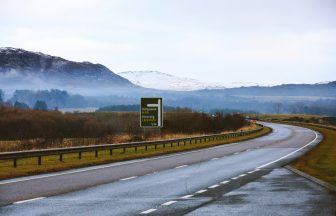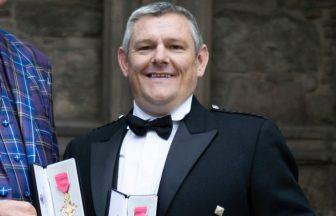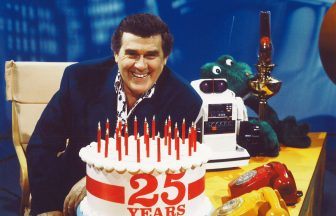By his own admission, Humza Yousaf had some “very big shoes to fill” when he took over from Nicola Sturgeon one year ago on Wednesday.
On March 27, 2023, he was crowned leader of the SNP, narrowly beating his rival Kate Forbes and easily overtaking now-Alba MSP Ash Regan.
The former health secretary is Scotland’s first Muslim and person of colour to hold the top role and the sixth overall.
But barely a week passed before the former chief executive of the SNP – and Sturgeon’s husband – was arrested before being released, pending further investigations, throwing the party into turmoil.
The same day they carried out a search on Peter Murrell and Sturgeon’s home in Uddingston that lasted 29 hours and saw several police officers enter and erect a large tent outside, with police tape across the garden.
 STV News
STV NewsLater that month MSP Colin Beattie, the SNP treasurer, was arrested before being released without charge. He later resigned.
Before the fledgling First Minister could breathe a sigh of relief though his predecessor was arrested and questioned for several hours before being released, also pending further investigation.
It wasn’t the easiest first month a leader has had in office.
Throughout his tenure, Yousaf has spoken highly of Sturgeon, describing her as the “most impressive politician in Europe”.
But he has also ditched some of her policies, including a ban on alcohol advertising and the expansion of Highly Protected Marine Areas.
And he promised to reform his party and make it more transparent and accountable than it was under Sturgeon.
SNP finances under question
From the day he won the election, Yousaf has faced questions about the SNP’s finances.
It was in August last year when summer was beginning to draw to a close that it was revealed the SNP was in an £800,000 deficit.
It was the party’s second-largest-ever deficit and the biggest it had recorded in a non-parliamentary election year.
Before the figures were made public though, there were fears the SNP would be unable to file its accounts with the Electoral Commission after its previous accountancy firm stood down from its role.
Just ahead of the deadline, the SNP managed to hire AMS Accountants Group.
But the company said it could only give the party a qualified opinion – something given when accounts contain errors or omissions.
The firm said this was because “original documentation in respect to some items of cash and cheques received for the current and prior year, relating to membership, donations and raffle income were not kept by the party”.
However, AMS said its accounts “give a true and fair view of the state of the SNP as at December 31, 2022 and of its deficit for the year then ended”.

All the while, Yousaf’s wife Nadia El-Nakla had been pregnant with their third child who was born in July.
In September, Yousaf outlined his plans for the year ahead with a pledge to expand childcare.
He said his top priority would be to tackle poverty but he was also adamant that he would restore relations with Scotland’s businesses.
By the time October rolled around the FM was dealt more bad news when Labour beat the SNP to win the Rutherglen and Hamilton West by-election.
Former SNP MP Margaret Ferrier was removed from the seat after breaching Covid laws in 2020.
It came as the SNP’s polling ratings continued to decline as Labour’s rose.
SNP announces council tax freeze
About two weeks later the SNP held its annual conference in Aberdeen where the party unanimously agreed on its independence strategy.
But the biggest announcement was that council tax would be frozen across Scotland.
That led to anger from councils and two local authorities decided to raise taxes – but they were eventually convinced by the Scottish Government to freeze rates.
The policy is one of the biggest wins of Yousaf’s administration and is something he is keen to highlight on the campaign trail as a move that helps struggling Scots during a cost of living crisis.

During the conference, he also announced another £300m to tackle NHS waiting lists, £500m to create renewable jobs and £100m for Scottish arts and culture funding.
October also saw the scrapping of peak-time rail fares, saving many commuters hundreds of pounds each year.
Yousaf’s family trapped in wartorn Gaza
On October 7, Hamas carried out attacks in Israel killing more than 1,200 people – mostly civilians – and taking more than 240 hostage.
Israel launched a war against Hamas and laid siege to Gaza. More than 30,000 Palestinians – mostly women and children – are estimated to have been killed in the war.
Following the October 7 attack, the FM reached out to both the Muslim and Jewish communities to offer support.
As Israel’s campaign in Gaza continued, Yousaf became an outspoken critic of the Israeli government.
He was personally impacted by the war with his in-laws – from Dundee – both trapped in Gaza.
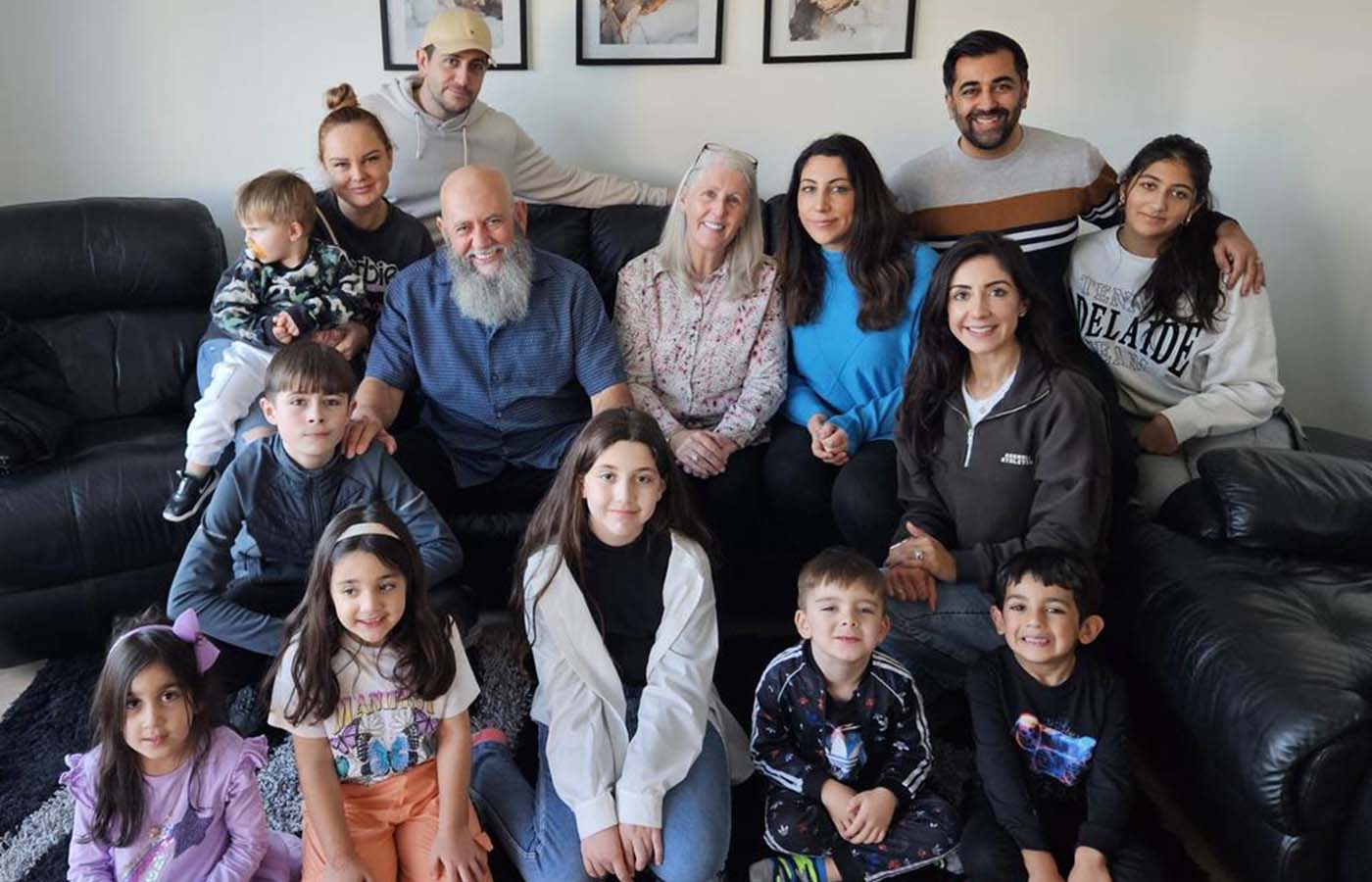 Twitter
TwitterIn November, the family managed to escape and arrived back in Scotland.
During the war, the SNP has been keen to expose divisions in Labour and has consistently called for a ceasefire in the region.
An SNP motion urging a ceasefire led to a wave of Labour frontbench resignations with 56 MPs rebelling against Keir Starmer.
£11,000 holiday data charges racked up on minister’s iPad
In November, Yousaf faced another brewing crisis – this time with his health secretary Michael Matheson.
The minister admitted to racking up £11,000 worth of data roaming charges while abroad. He said he did not know how the iPad was used but later admitted his sons had streamed football.
On February, he resigned after being handed the Scottish Parliament’s report into his conduct.
The case may illustrate a loyalty Yousaf has to his colleagues, defending Sturgeon and Matheson at times when opposition MPs urged him to go against them.

In December, Yousaf had a chance to lay out his vision for the nation when his finance secretary delivered the Budget.
Yousaf kept to his promise of what he described as “progressive taxation” with Shona Robison announcing a new tax band for higher earners and an increase for those earning the highest amount.
The budget brought more middle earners into higher tax bands but it also saw all Scottish benefits rise with inflation, Scottish Child Payment increase and school meal debt for children wiped.
During the same month, the Court of Session ruled that the UK Government’s block of the Gender Recognition Reform Bill was lawful.
Yousaf’s government decided not to challenge that verdict.
Yousaf looks to 2024 and the general election
Moving into the New Year, 2024 has been a better year for the SNP leader than the previous year was.
In January he launched the SNP’s general election campaign with a pitch to “wipe the Tories off the electoral map”.
Despite Labour’s resurgence in the polls, Yousaf has been keen to focus much of his campaigning on the Conservatives.
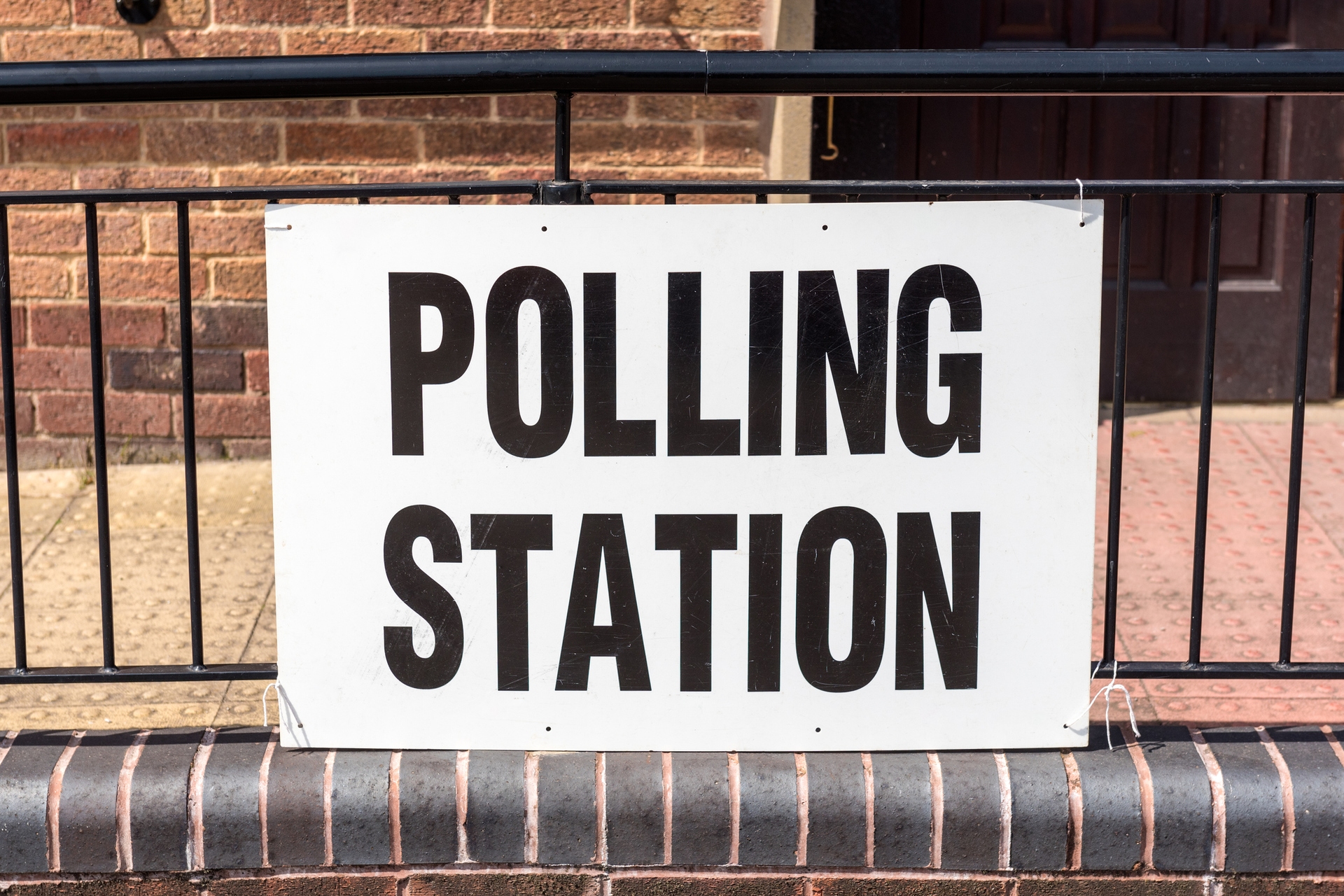 iStock
iStockBoth parties agree that in every Tory seat, it is SNP in second place.
Looking forward, polls suggest the SNP and Labour are neck and neck, with the latter expected to form the next UK Government.
In Holyrood, Yousaf doesn’t face another election until 2026.
By then, the First Minister could have time to reverse the current polls in his favour and deliver the policies he thinks will benefit Scotland the most.
Follow STV News on WhatsApp
Scan the QR code on your mobile device for all the latest news from around the country


